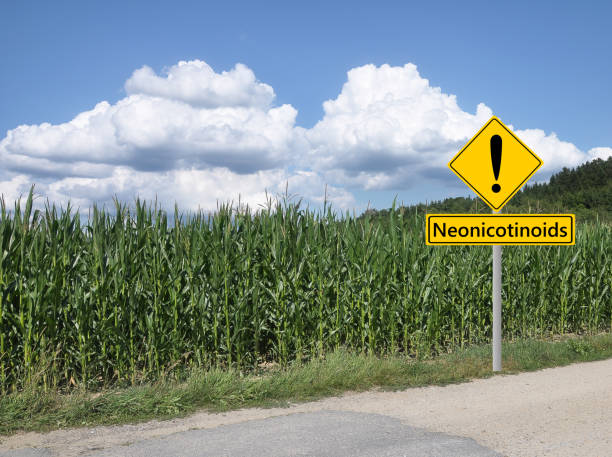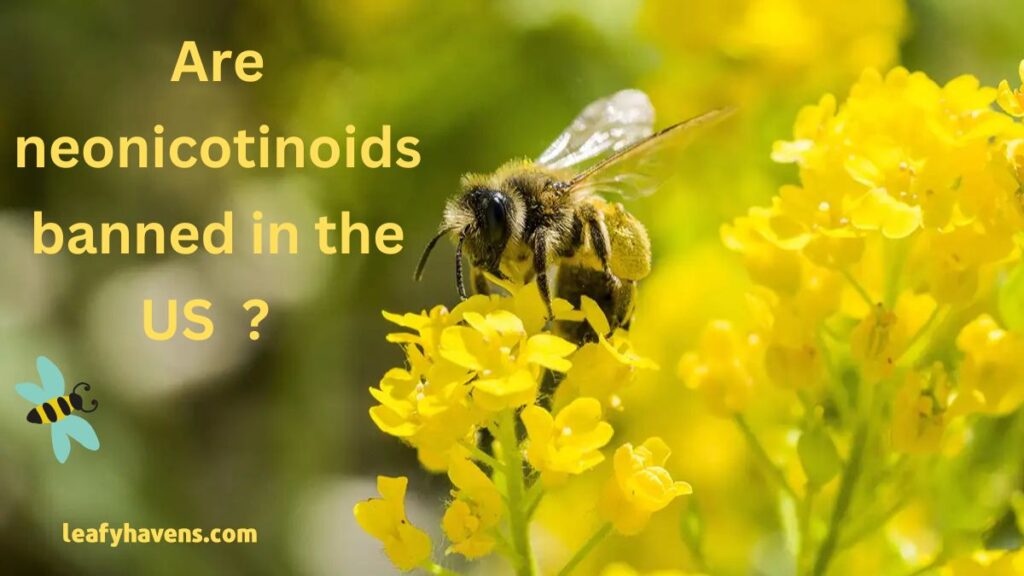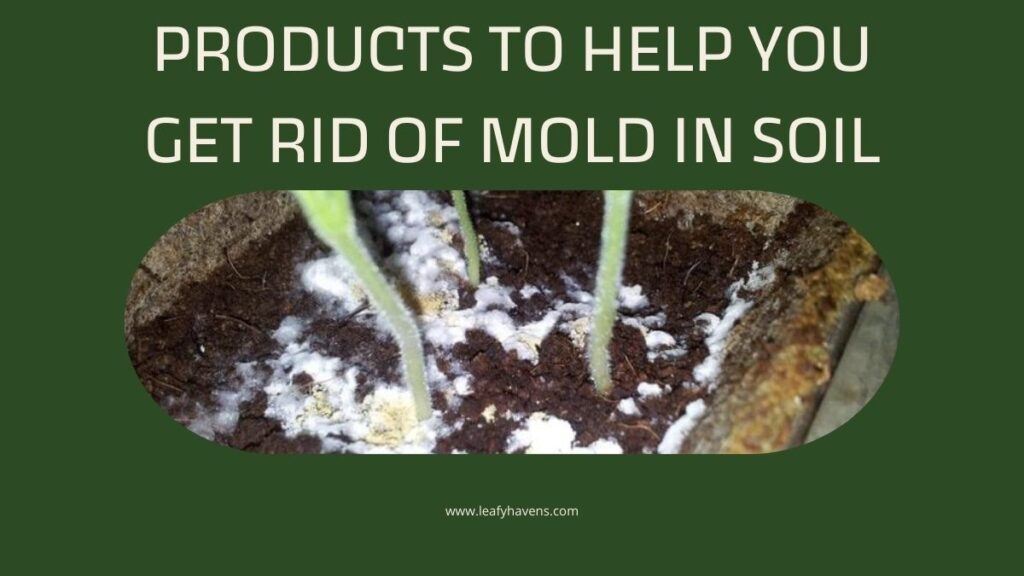Neonicotinoids, or neonics as they are commonly abbreviated, have long been at the forefront of environmental discussions. Throughout the world, especially in the US, these pesticides are widely utilized.Are neonicotinoids banned in the us ? The answer is not as simple as you may believe. Although neonicotinoid insecticides are not completely prohibited in the US, their effects on pollinators and ecosystems are drawing more attention. Some states have implemented limits, and the EPA is examining their environmental effects. For example, in order to conserve pollinators and lessen urban pollution, California will restrict the sale of neonicotinoids to approved applicators and prohibit their use outside of agriculture beginning in January 2025. Similar restrictions or prohibitions for non-agricultural uses have been put in place by other states, such as Maine and New Jersey.In some regions of the world, these substances are strictly regulated, but in the US, there are a number of limitations and continuous discussions about their status.
What neonicotinoids are, how they affect pollinators, the regulatory environment, are neonicotinoids banned in the us? and why it’s important to comprehend this subject in order to make confident product purchases are all covered in this article.
you may want to read: Will Rain Wash Off Honeydew?
What Are Neonicotinoids?

A class of pesticides called neonicotinoids shares chemical similarities with nicotine. These consist of substances such as thiamethoxam, clothianidin, and imidacloprid. These pesticides successfully control insects that harm crops by targeting the pests’ central nervous systems.
Nonetheless, there is a concerning correlation between neonicotinoids and bees. Research indicates that these chemicals play a role in the reduction of pollinators, such as honey bees, which are essential to agricultural output. The chemicals are toxic to non-target creatures like bees and birds because they are systemic, which means they penetrate every part of the plant, including nectar and pollen.
The Impact of Neonicotinoids on Bees
Many environmentalists refer to neonicotinoids as a pesticide that is killing bees. Bees are crucial for pollination, responsible for producing one-third of the food we eat. Without them, agricultural systems could face devastating consequences.
Research has demonstrated the following effects of neonicotinoids on pollinators:
- Reduced immune responses: Bees exposed to neonics are less capable of fighting diseases.
- Lower survival rates: Bees struggle to survive the winter after exposure.
- Decline in reproduction: Bee populations are dwindling due to reduced reproduction rates.
The link between these insecticides and pollinator decline has led many to ask, are honey bees protected? The answer lies in government and individual actions, which we’ll discuss later.
Are Neonicotinoids Banned in the US?

The United States has not fully outlawed neonicotinoids, in contrast to the European Union, which has done so for a number of these substances. The Environmental Protection Agency (EPA) has decided to control their use instead.
Current Status of Neonicotinoids in the US
- Partial restrictions: The EPA has introduced limits on how and where neonicotinoids can be applied. For example, some pesticides are banned from residential areas to minimize exposure to non-target species.
- Ongoing reviews: The EPA periodically reviews the registration of these chemicals. While proposed restrictions have been introduced, they fall short of the EU’s outright bans.
- Emergency exemptions: Certain states, like Florida, have repeatedly allowed emergency use of neonicotinoids for specific crops like citrus, citing economic necessity.
Despite these measures, environmentalists argue that these steps are insufficient to protect vital pollinators.
Steps You Can Take to Help Protected Bees

If you’re concerned about the effects of neonicotinoids, there are actionable steps you can take:
1. Support Organic Farming
Choose organic produce to reduce demand for chemically treated crops. Organic farms use natural methods to manage pests, helping to protect bees and other pollinators.
2. Plant Bee-Friendly Gardens
Grow native plants that attract bees and avoid using harmful pesticides in your garden. Opt for natural alternatives that won’t harm pollinators.
3. Educate Yourself and Others
Understanding the issue and spreading awareness about the dangers of neonicotinoids can drive collective action. Advocate for stricter regulations and encourage others to do the same.
Why Understanding Neonicotinoids Matters for Consumers
Your purchase selections can be influenced by your knowledge about bees and neonicotinoids. Being aware enables you to make wise decisions while purchasing gardening supplies or agricultural products. Seek out labels that attest to the products’ organic certification or bee friendliness.
Steer clear of pesticides that include neonicotinoids when selecting them for your crops or lawn. Choose natural remedies that repel pests without endangering pollinators instead.
1. Potential Neurological and Developmental Risks
Neonicotinoids may affect the human nervous system, with studies suggesting links to developmental issues and endocrine disruption. More research is needed to confirm these effects.
2. Contamination in Food and Water
These chemicals can leach into soil and waterways, potentially contaminating drinking water and food. Regulatory bodies monitor residue levels to ensure safety.
Final Thoughts
One urgent environmental concern is brought to light by the question of are neonicotinoids banned in the US . The US has chosen to implement partial limits and continuous evaluations, whereas other nations have outright bans.
Making educated decisions requires an understanding of how neonicotinoids affect pollinators. Your actions can help safeguard these important species, whether you’re supporting eco-friendly practices or selecting products for your garden.
You can contribute to protecting pollinators and maintaining a healthy ecology for coming generations by remaining informed and supporting sustainable solutions.
FAQs: Are Neonicotinoids Banned in the US?
1. What are neonicotinoids?
Neonicotinoids are a type of insecticide that targets pests’ nervous systems. They are effective but controversial due to their harmful effects on pollinators like bees.
2. How do neonicotinoids affect pollinators?
These pesticides reduce bees’ survival rates, reproductive success, and immunity, significantly contributing to the decline of pollinator populations.
3. Are honey bees protected in the US?
While honey bees are not directly protected by federal law, some regulations aim to reduce exposure to harmful pesticides. However, many believe these measures are insufficient.
4. Is the EPA considering a ban on neonicotinoids?
The EPA has not proposed a full ban but has introduced partial restrictions. Ongoing reviews will determine whether stricter measures will be implemented.
5. What can I do to help protect bees?
You can support organic farming, plant bee-friendly gardens, and choose products labeled as pollinator-safe. Advocating for stricter regulations also helps.





